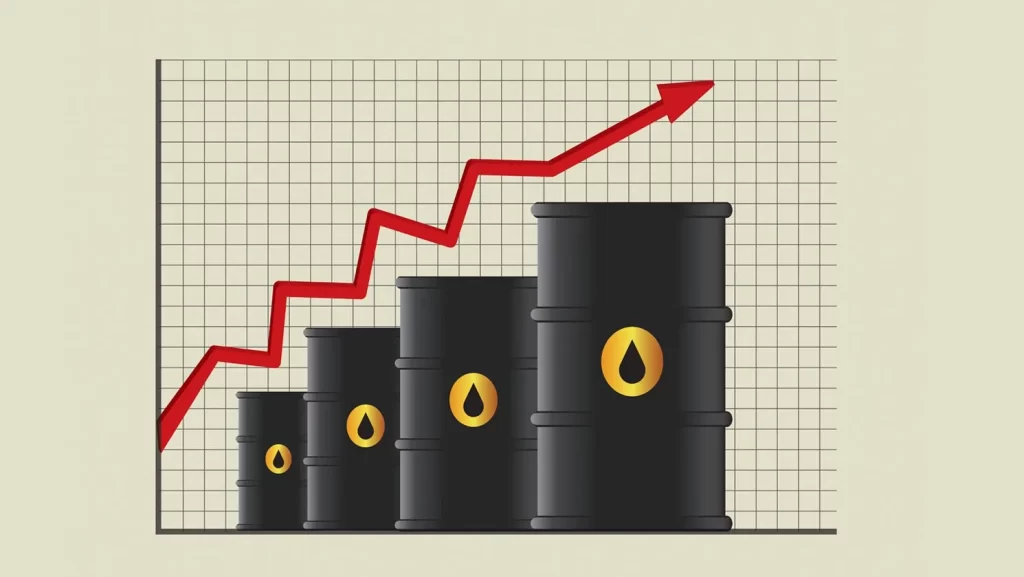Diversify Your Portfolio With Commodity Investing

Commodities, physical raw materials like agriculture products, natural resources and precious metals offer investors numerous ways to invest in them via futures contracts, ETFs and mutual funds. Commodity investments offer several benefits over other asset classes like stocks or bonds such as low correlation with stocks or bonds as well as providing exposure to different economic trends.
Some commodities, like oil prices, move in tandem with their respective stocks. With 5paisa’s convenient platform you can trade both types of investments from one account.
Options
There are various methods available to you for investing in commodities, from futures contracts to commodity-linked ETFs. Although commodities don’t generate cash flow directly, their low correlation with other financial assets makes them a potential diversifier in your portfolio. Inflation-sensitive commodities can help offset rising costs in other investments in your portfolio by rising their prices alongside inflation.
Individuals can trade commodities via futures contracts, exchange-traded products and mutual funds. Physical commodities like oil and gold require significant funds and may not be suitable for everyone; investing in commodity-linked mutual funds or ETFs provides an easier way of accessing this sector of the market – although their volatility remains significant so should only comprise part of your overall portfolio.
ETFs
Commodity ETFs offer an easy, quick, and cost-effective way to add physical goods such as agriculture, energy or precious metals into your portfolio – providing access to them and offering protection from inflation.
Commodity ETFs trade either the physical commodities themselves, or futures contracts related to them. Some commodity ETFs invest across multiple asset classes while others specialize in specific sectors.
Some commodity ETFs are physically-backed, meaning they hold actual commodities in storage and incur transportation, rent and security costs; the majority are futures-based and track an index or basket of assets.
Commodity ETFs offer many advantages over stocks and bonds in your overall investment portfolio, with lower volatility than both assets classes. Furthermore, they may be better equipped to perform under conditions that threaten equities or bonds such as inflation; however, as always it is wise to conduct due diligence on any ETFs chosen to ensure they match up with your overall strategy.
Mutual Funds
Commodity funds offer investors a straightforward method for investing in commodities without needing to hold physical assets such as precious metals or futures contracts directly. While investing directly may require significant capital (margin requirements) and space to store cotton bales or frozen orange juice concentrate barrels, mutual funds provide exposure without as much investment risk.
Funds offer investors exposure to multiple aspects of commodities, such as metals, energy sources and agricultural commodities. Some funds also offer leveraged or inverse exposure to commodity prices.
Some commodity funds are overseen by experienced fund managers, which can help reduce risks. But investors must still understand how these funds may react to market conditions and differ from investing directly into an underlying commodity. Furthermore, inflationary pressures may reduce purchasing power over time.
Physical Ownership
Commodity investing is one way to diversify a portfolio, but it comes with particular risks that may not make sense for everyone.
Investors can purchase physical commodities (like gold coins), trade futures contracts or invest in commodity ETFs or mutual funds; the latter two provide more investment flexibility as they don’t bind themselves to any physical assets and can be traded throughout the day just like stocks.
Investment in oil companies or copper miner’s shares is another popular way of diversifying commodity holdings, but this comes with operational risks such as industrial accidents, labor strikes and management decision mistakes that may cause price discrepancies with their underlying commodities.
How adding commodities to a portfolio makes sense depends on an investor’s risk tolerance, time horizon and investment objectives. Opening an account with SoFi Invest provides access to an expansive range of stocks, exchange-traded funds (ETFs), mutual funds and alternative investments (full fee disclosure here). Want more info? Click here or give us a call if interested!




